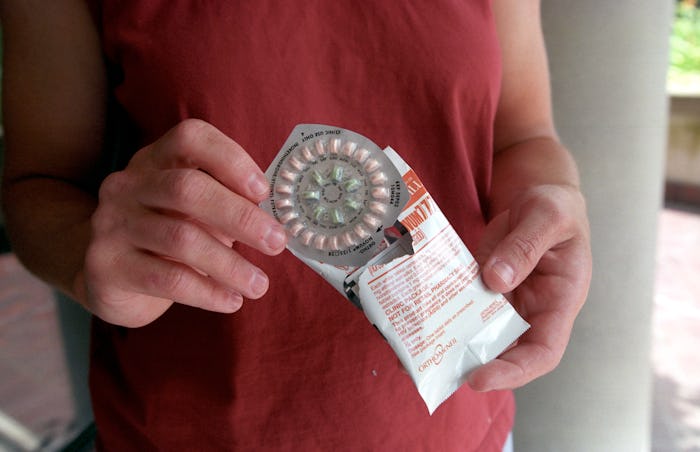Life

Teens Are Having Safe Sex, But It Might Not Last
According to a new report from the Centers for Disease Control and Prevention, more teens are using contraception the first time they have sex, which is very good news. Although the number of sexually active teens has remained steady for over a decade — the new CDC reports says 42 percent of teen girls and 44 percent of teen boys have had sex — the teen pregnancy rate is down, likely because the way teens use contraception is changing. The report found that more teen girls are taking initiative and using contraception the first time they have sex. Between 2011 and 2015, 81 percent of teens girls used contraception, up from 75 in 2002, according to the report.
According to Stat News, condoms are the most popular form of contraception, with 80 percent of teen boys reporting that they use them. In 2002, just 71 percent of boys were using condoms. IUDs and long acting, reversible contraceptives (LARC) are still not very common among the teenage set — 3 percent of girls are using IUDS and another 3 percent are using hormonal implants.
Back when emergency contraception wasn't available over the counter, only 8 percent of girls reported using the morning after pill, according to a 2002 CDC report on teen contraception use. According to this new report, 23 percent of teen girls reported using it after sex.
There is a racial gap, though, among teens who use contraception, and it speaks to a larger public health problem. Only 62 percent of black teen girls and 79 percent of Hispanic girls reported using contraception the first time they had sex compared to 87 percent of white teens. Teens are also using withdrawal (commonly known as the "pull out" method) as birth control — a whopping 60 percent of them — which is not an effective way to prevent pregnancies or STDs.
The data is promising, according to experts. Dr. Ellen Rome, head of Cleveland Clinic Children's Center for Adolescent Medicine, told CBS News:
We have more kids using some form of contraception, but the problem is that lumped into that is the group [using] withdrawal as that method. So we have room for improvement in how we counsel kids on effective contraception.
There's a lot of room for improvement. Although teen birth rates are at a historic low, President Donald Trump just appointed Valerie Huber, an abstinence-only education advocate, as chief of staff to the assistant secretary for health for the United States Department of Health and Human Services. Nationwide, teen pregnancy rates are at historic lows — except in states where no science-based sex education is offered.
Most states, according to the Guttmacher Institute, also require minors to have parental consent to get a prescription for any type of birth control. Conservative legislators are actively blocking access to contraception for young people, while at the same time restricting access to safe abortions and affordable health care (or health care plans that cover birth control at all) for low-income women.
The current administration and the Republican-led Congress seems to be taking steps to undo all of the progress made in the past two decades when it comes to lowering rates of teen pregnancies, abortion, and STD awareness. Hopefully, this new report will give them pause when they think of restricting access to contraception and healthcare. Though that doesn't seem very likely.